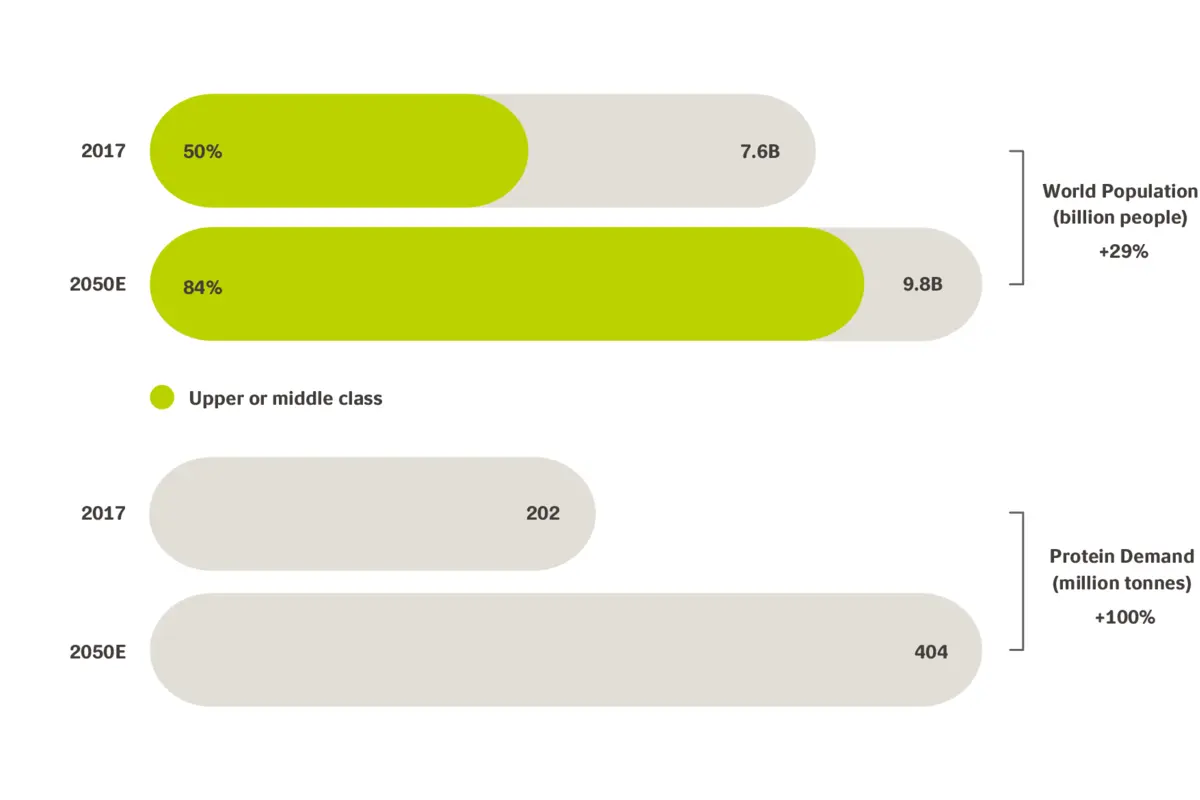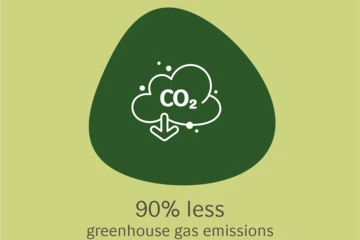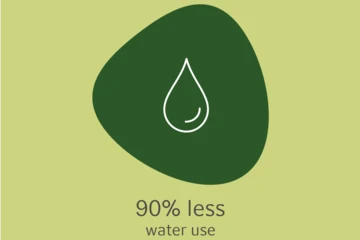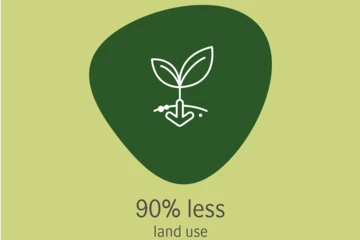According to global population predictions, there will be 10 billion people on the planet by 2050. Ten billion people who all need protein to thrive. In 2018, global protein demand hit 202 million tonnes and by 2050 it’s projected to double as both incomes and populations rise.
Currently the largest source of protein source is meat. But with the livestock industry responsible for 14.5% of greenhouse gas emissions and using 80% of agricultural land, we need to look for an alternative source of protein that can cut carbon emissions and save on land and water.
That’s where precision fermentation comes in.
It’s time to transform food production
It’s time to transform food production.
According to global population predictions, there will be
10 billion people on the planet by 2050. Ten billion people who all need protein to thrive. In 2018, global protein demand hit
202 million tonnes and by 2050 it’s projected to double as both incomes and populations rise.


90% Savings with precision fermentation
Protein from fermentation is part of the solution
Using precision fermentation, you can replicate existing proteins and create new types of protein. This can help meet the increasing demand for protein from a growing global population.
What’s more, you can produce high quality proteins far more efficiently than today through animals. Preliminary studies indicate that getting our protein from fermentation rather than animals could save round 90% on greenhouse gas emissions, water use and use of agricultural land. This can help reducing pressure on climate, biodiversity and water supply to people.
Support change
No matter how we look at it, our current way of life is not sustainable. If we do not change our lifestyle, we are going to need resources equivalent to almost three planets to sustain us by the year 2050. Changing the way protein is produced can be part of the solution.
In addition to cutting CO2 emissions and reducing water and land use, precision fermentation enables greater food safety and food security. Global events of the past few years, such as the Covid-19 pandemic and the war in Ukraine, have shown us the vulnerability of our supply chains. Using precision fermentation, you can produce protein with less land use and less water.
So, when we say we’re rethinking proteins for good, we’re doing so for you, your customers and for future generations.

Want to talk protein?
We believe there is a new exciting future of protein waiting to be discovered. One where you don't need to compromise on nutrition, taste or texture when developing proteins that are better for you and the planet.
Get in touch to discuss how we can help you rethink proteins.


